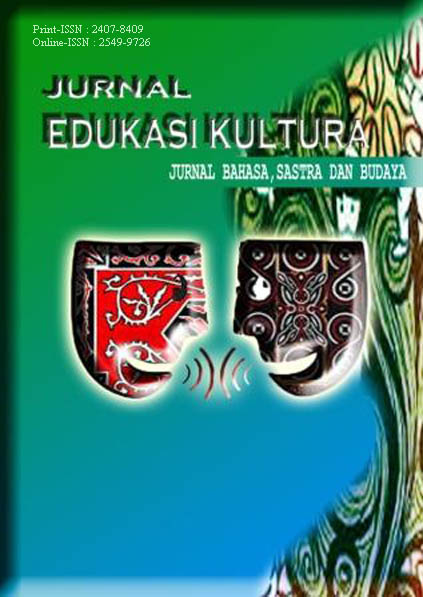Analisis Penilaian Kelulusan Di Sd Muhammadiyah 34 Medan
Abstract
This study is motivated by the limiteThis study aims to analyze the graduation assessment system at SD Muhammadiyah 34 Medan, assess its compliance with the principles of basic education assessment according to national policies, and identify challenges in curriculum implementation. The study was conducted using a qualitative method with semi-structured interviews with the principal as the main resource person. The results of the study indicate that the assessment system used refers to the 2013 Curriculum by considering report card scores, school exams, attendance, and attitudes. This assessment is considered to be in line with the principles of objectivity and fairness as stated in Permendikbudristek No. 21 of 2022. However, limited teacher understanding and facilities are the main obstacles in the transition to the Merdeka Curriculum.References
Anjani, P. M., Gitasmara, F. R., & Jaya, I. (2023). Analisis Standar Penilaian Pendidikan pada Jenjang Pendidikan Dasar Berdasarkan Permendikbudristek No. 21 Tahun 2022. Pendas: Jurnal Ilmiah Pendidikan Dasar, 9(2), 110–119.
Handayani, D. (2023). Implementasi Kurikulum Merdeka di Sekolah Dasar: Peluang dan Tantangan. Jurnal Pendidikan Dasar Indonesia, 8(1), 55–64.
Maulana, M. I., & Suryani, S. (2021). Pendekatan Kualitatif dalam Penelitian Pendidikan. Jurnal Ilmiah Pendidikan dan Pembelajaran, 5(1), 45–53.
Putri, A., & Wibowo, B. (2022). Analisis Kelebihan dan Kekurangan Kurikulum 2013 dan Kurikulum Merdeka Belajar. Jurnal Kajian Pendidikan, 4(2), 89–97.
Suprikhati, S., Susongko, P., & Kusrina, T. (2023). Model Asesmen Kelulusan Fase C pada Mata IPAS. Journal of Education Research, 5(4), 70–80.
Wati, N., & Wibowo, A. (2020). Analisis Data Kualitatif dalam Penelitian Studi Kasus Pendidikan. Jurnal Pendidikan Nusantara, 3(1), 60–68.
Yuliani, L. (2022). Efektivitas Wawancara Semi Terstruktur dalam Mengungkap Praktik Pembelajaran di Sekolah Dasar. Jurnal Penelitian Pendidikan Guru Sekolah Dasar, 10(2), 112–120.
Published
How to Cite
Issue
Section
License
Copyright (c) 2025 Syahzila Suci Utami, Nurul Hafizah, Anindya Hanifahn, Doni Irawan Saragih

This work is licensed under a Creative Commons Attribution 4.0 International License.

This work is licensed under a Creative Commons Attribution 4.0 International License
Authors who publish with this journal agree to the following terms:
- Authors retain copyright and grant the journal right of first publication with the work simultaneously licensed under Creative Commons Attribution 4.0 International License that allows others to share the work with an acknowledgement of the work's authorship and initial publication in this journal.
- Authors are able to enter into separate, additional contractual arrangements for the non-exclusive distribution of the journal's published version of the work (e.g., post it to an institutional repository or publish it in a book), with an acknowledgement of its initial publication in this journal.Penulis.
- Authors are permitted and encouraged to post their work online (e.g., in institutional repositories or on their website) prior to and during the submission process, as it can lead to productive exchanges, as well as earlier and greater citation of published work (Refer to The Effect of Open Access).



